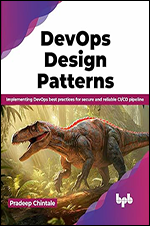Advances in Communications-Based Train Control Systems
- 4h
- F. Richard Yu (ed)
- CRC Press
- 2016
With rapid population explosion, improving rail transit speed and capacity is strongly desirable around the world. Communication-based train control (CBTC) is an automated train control system using high capacity bidirectional train–ground communications to ensure the safe operation of rail vehicles. This book presents the latest advances in CBTC research. The contributed chapters from leading experts in the field cover different aspects of modelling, analysis, design, testing, management, deployment, and optimization of CBTC systems.
Advances in Communications-Based Train Control Systems begins with the background and evolution of train signaling/train control systems. It introduces the main features and architecture of CBTC systems and describes current challenges and successful implementations around the world. Subsequent contributed chapters discuss such key research areas as
- Nondestructive testing techniques that can be employed to inspect rails and fastening parts
- New wireless channel modelling techniques for underground tunnels and viaducts
- Advanced wireless communication systems to improve CBTC communication availability
- Schemes to integrate train control and train-ground communications by modelling the control system of a group of trains in CBTC as a networked control system
- Use of cognitive control to improve train control performance, considering both train–ground communication and train control
The book includes many supporting illustrations and tables along with a valuable set of references at the end of each chapter. With this book, researchers and practitioners will be well-equipped to advance the research and development in this important field.
About the Editor
F. Richard Yu received the PhD degree in electrical engineering from the University of British Columbia (UBC) in 2003. From 2002 to 2004, he was with Ericsson (in Lund, Sweden), where he worked on the research and development of wireless mobile systems. From 2005 to 2006, he was with a start-up in California, USA, where he worked on research and development in the areas of advanced wireless communication technologies and new standards. He joined Carleton School of Information Technology and the Department of Systems and Computer Engineering at Carleton University in 2007, where he is currently an Associate Professor. He received the IEEE Outstanding Leadership Award in 2013, Carleton Research Achievement Award in 2012, the Ontario Early Researcher Award (formerly Premier’s Research Excellence Award) in 2011, the Excellent Contribution Award at IEEE/IFIP TrustCom 2010, the Leadership Opportunity Fund Award from Canada Foundation of Innovation in 2009, and the Best Paper Awards at IEEE Globecom 2012, IEEE/IFIP TrustCom 2009, and Int'l Conference on Networking 2005. His research interests include cross-layer design, security, green IT, and QoS provisioning in wireless networks.
In this Book
-
Introduction to Communications-Based Train Control
-
Testing Communications-Based Train Control
-
Safe Rail Transport via Nondestructive Testing Inspection of Rails and Communications-Based Train Control Systems
-
Modeling of the Wireless Channels in Underground Tunnels for Communications-Based Train Control Systems
-
Modeling of the Wireless Channels with Leaky Waveguide for Communications-Based Train Control Systems
-
Communication Availability in Communications-Based Train Control Systems
-
Novel Communications-Based Train Control System with Coordinated Multipoint Transmission and Reception
-
Novel Handoff Scheme with Multiple-Input and Multiple-Output for Communications-Based Train Control Systems
-
Networked Control for a Group of Trains in Communications-Based Train Control Systems with Random Packet Drops
-
Cognitive Control for Communications-Based Train Control Systems




